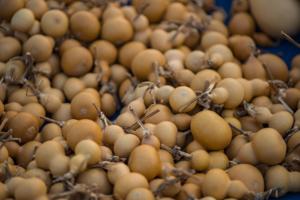What Happens If Tomato Plants are Not Pollinated?
Tomatoes are a popular vegetable that is grown in gardens and farms all over the world. These plants are known for their delicious and juicy fruits that are used in many different dishes. However, without pollination, tomato plants will not produce fruit, leaving gardeners disappointed at the lack of yield. In this article, we will explore the consequences of tomato plants not being pollinated and how to ensure that your plants get the pollination they need to produce an abundant harvest.
Why Is Pollination Important for Tomato Plants?
Tomatoes, like other flowering plants, rely on pollination to produce fruits. Pollination is the transfer of pollen from the male reproductive part of a flower to the female reproductive part of a different or the same flower. In tomato plants, the male reproductive part is the stamen, which contains pollen, and the female reproductive part is the pistil, which contains the ovules. When pollination occurs, the ovules are fertilized, and the fruit begins to develop.
What Happens If Tomato Plants are Not Pollinated?
If tomato plants are not pollinated, they will not produce fruit. The flowers will wither and fall from the plant without developing into the juicy, red orbs that we all know and love. This can be a frustrating experience for gardeners who have put in time and effort to cultivate tomato plants. Without pollination, tomato plants will not produce seeds, making it difficult to save the seeds for future crops. Additionally, if tomato plants are not pollinated for an extended period, they may begin to produce fewer flowers, as the plant realizes that it is not reproducing successfully.
How Can You Ensure Pollination of Tomato Plants?
There are two ways to ensure pollination of tomato plants: natural and artificial. Natural pollination occurs when bees or other pollinating insects visit the flowers of the tomato plant. To attract bees, gardeners can plant companion flowers such as marigolds, which produce nectar and pollen that bees find irresistible. Additionally, gardeners can avoid using pesticides that harm pollinating insects.
If natural pollination is not sufficient, growers can resort to artificial pollination. This process involves manually transferring pollen from the stamen to the pistil. To do so, gardeners can use a small brush or their fingers to transfer the pollen from one flower to another. This method can be time-consuming but can be rewarding in terms of yield
Conclusion
Tomatoes are a fruit that is loved by many people, and it is essential to ensure that tomato plants receive the pollination they need to produce healthy and juicy fruits. Without pollination, tomato plants will not produce fruit, leaving growers disappointed. By planting companion flowers and avoiding the use of harmful pesticides, gardeners can attract pollinators to their tomato plants naturally. If necessary, artificial pollination is a method that can be used to ensure that tomato plants produce a healthy yield. With these methods, gardeners can enjoy a bountiful harvest and take delight in the delicious fruits of their labor.

 how many times do yo...
how many times do yo... how many planted tre...
how many planted tre... how many pine trees ...
how many pine trees ... how many pecan trees...
how many pecan trees... how many plants comp...
how many plants comp... how many plants can ...
how many plants can ... how many plants and ...
how many plants and ... how many pepper plan...
how many pepper plan...































